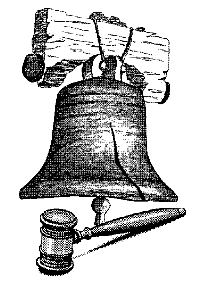Many individuals -- including the victim -- have expressed displeasure both with how the case was handled in 1977 and with how authorities are currently proceeding. A particular point of contention seems to be the conduct of the judge who presided at the original trial, and allegations abound that he was biased and unreasonable when it came to sentencing. The victim, who was 13 years old at the time, long ago received an unspecified settlement against Polanski and has expressed that, "Every time this case is brought to the attention of the court, great focus is made of me, my family, my mother and others. That attention is not pleasant to experience and is not worth maintaining over some irrelevant legal nicety, the continuation of the case."
Several officials in both France and Poland -- countries in which Polanski has citizenship -- have strenuously called for him to be released on bail. French Minister of Culture and Communications Frédéric Mitterrand, especially, has advocated for Polanski's release. In a recent TIME article Mitterrand is quoted as saying, "To see [Polanski] thrown to the lions and put in prison because of ancient history — and as he was traveling to an event honoring him — is absolutely horrifying." Taking aim at the U.S. authorities seeking his arrest, Mitterrand added, "There's an America we love and an America that scares us, and it's that latter America that has just shown us its face."
Prosecutors, on the other hand, have consistently maintained that it would be a gross miscarriage of justice to allow a man who "drugged and raped" a young girl to go free. Also salient is the fact is that Polanski was not tried before a questionable judge or even a jury of his peers -- he pled guilty. In fact, in all the furor over this issue there has been very little focus on the actual crime itself. Few, if any, deny that Polanski did indeed force himself sexually on a 13-year-old girl. Unless the media have omitted new revelations that cast significant doubt on Polanski's original guilt, it is hard to see any justification for his continued freedom.
This case presents many sensitive issues that must be carefully weighed if one is truly to pursue justice. Delicate questions of judicial impartiality, legal ethics, prosecutorial discretion, and victims' rights are certainly evident in the debate surrounding Polanski's arrest. It is also quite clear, however, that Polanski's international stature or widely acclaimed artistic gifts have absolutely no bearing on the issue. For that matter, the long passage of time since the offense is also of little importance. While this factor could appropriately influence a future sentencing decision, the lack of a statute of limitation on offenses of this type indicates that the passage of time is of no consequence in the eyes of the law. Moreover, statutes of limitations are an expression of the belief that culpability for serious offenses does not diminish as the years pass. Guilt may be disproved or atoned for, but it may not be simultaneously admitted and avoided.
The world is becoming increasingly globalized and there are numerous treaties between nations that define legal prerogatives and provide for extradition and the serving of international arrest warrants. In executing the warrant for Polanski, it does not appear as though Switzerland trampled on the sovereignty of any other nation or broke any international laws. The only reason the warrant had not been executed sooner was because Polanski had fled to France, hiding behind its refusal to extradite French citizens.
Roman Polanski voluntarily admitted in a court of law to having had sex with an underage girl and he fled the jurisdiction to avoid sentencing. He has not retracted his guilty plea and no new evidence has been offered to prove his innocence. Polanski is not absolved of guilt because of his artistic prowess, nor is he immune from punishment by virtue of his celebrity. It is extremely difficult to see why he should not pay for his crime.

No comments:
Post a Comment